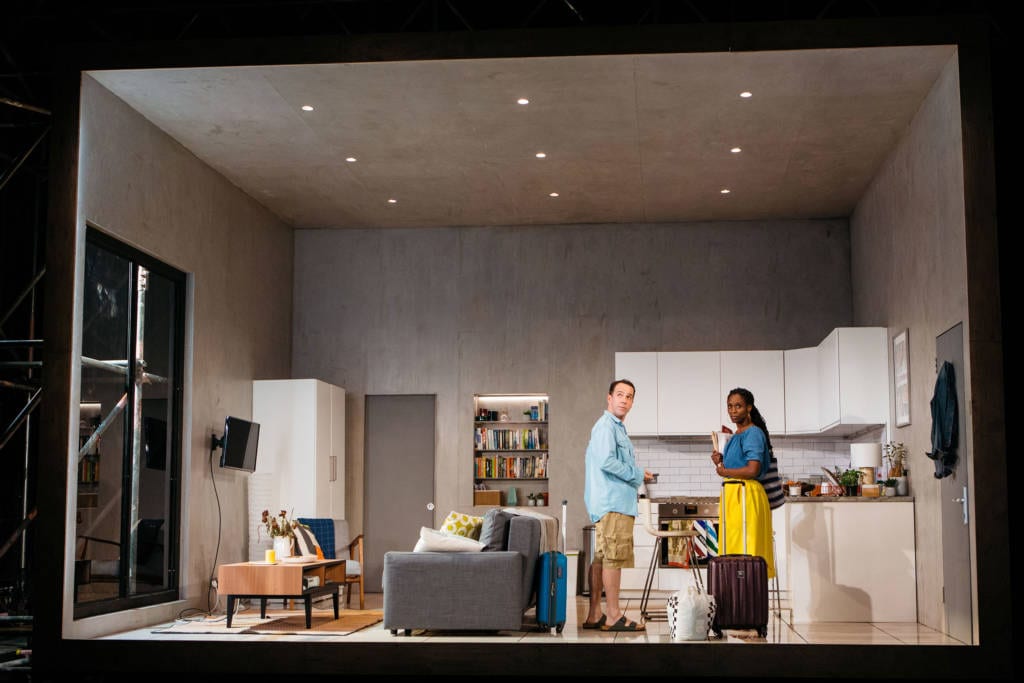To capture Victory Condition, the new play by Chris Thorpe, is no easy task.
On a visual and action level, what the audience sees is something comfortable and ordinary: a couple arriving home from holiday, doing what we all do in those circumstances – they unpack their suitcases, have a coffee, order takeaway pizzas, watch TV, take a shower and go to bed.
They look familiar. They are us. They’re our best friends. We feel that. We feel like we know them. We know what’ll happen next. We don’t really need to watch them to guess what’s going on. We needn’t worry.
So almost completely reassured, we listen to them instead. And here the play becomes a unique piece of theatre.
Thorpe, in the published script, informs us that these are two monologues which despite being printed in sequence are performed fragmented on stage. If you get distracted, you may think the Man and the Woman are interacting verbally as they are doing physically. But they are not.
In Thorpe’s world their thoughts are speaking to us, telling us stories we would rather not hear. Those are stories of loneliness, of cruelty, of heartlessness: they might be close to us in space and time, but we prefer to think of them in an elsewhere we don’t want to acknowledge.
Victory Condition is not a 20th century emotional stream of consciousness, but a cold and brutal voice that perfectly embodies the screen-tech obsessed, feeling deprived society we are all in.
Vicky Featherstone’s direction interestingly stresses to the extreme the dualism between what occurs on stage and what is told: setting the action in a modern flat – flawlessly designed by Chloe Lamford – she, with superb cunning, generates a semantic short-circuit. Everything is simultaneously reassuring and unsettling.
Sharon Duncan-Brewster as Woman and Jonjo O’Neill as Man both shine in this peculiar show, giving two strong and highly poignant performances.
O’Neill’s talent in making Thorpe’s language resound and dance without betraying the drama in the meaning is astonishing. His Man is controversial and pure at the same time.
Duncan-Brewster’s Woman mesmerises in an even more powerful stage presence. Her words resonate in the room, telling a post-apocalyptic Truth: the scenario might be here. It will be here. It is here.
This is clearly not a show for everyone; to not to get lost in the many levels and monologues is sometimes quite challenging, but epitomising the urgency of the here-and-now and the before-it-is-too-late as it does, it deserves to be seen and to be considered extremely relevant.

